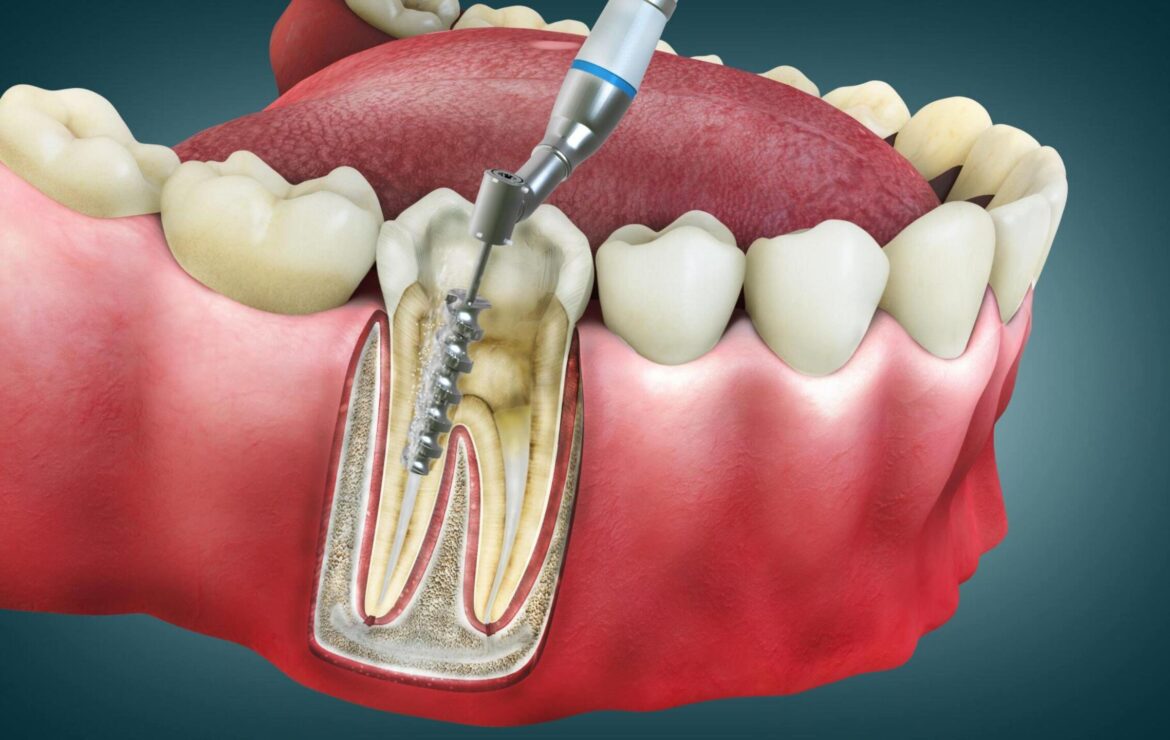Does Root Canal Cause Pain?

Does Root Canal Cause Pain?
It’s natural to be concerned about undergoing a root canal since it has a reputation for being a painfully intense dental procedure. However, modern technologies and anaesthetics have made root canal therapy far less uncomfortable. Understanding the issue and the source of any discomfort may assist to ease concerns.
What Does Root Canal Treatment Mean?
When an infection or inflammation damages the sensitive pulp tissue of a tooth, a root canal treatment is required. Nerves and blood vessels form this unpleasant pulp, which may be injured by:
The deterioration of teeth occurs gradually.
Gaps allowing microbes to get access.
Repeated dental operations.
Displaced teeth because of trauma.
Bacteria might enter and inflame the pulp when it is injured. If the condition is not addressed, it may lead to the development of an abscess. The infected fluid in an abscess causes tremendous pressure, leading to agonising toothaches.[1]
To avoid the spread of infection, a dentist must remove any damaged or diseased pulp tissue.
A root canal treatment primarily cleans and disinfects the hollow chamber located inside tooth roots. This relieves pain and encourages internal tooth restoration.
How Long Will It Take for Root Canal Treatment?
A root canal treatment may usually be done in one or two sessions, thanks to advances in technology. Depending on the complexity of the dentition, the initial consultation might last anywhere between 30 minutes and two hours.
Let’s Understand What the Root Canal Treatment Procedure Involves.
A local anaesthetic is used to thoroughly numb the damaged tooth and its surrounding area, assuring your comfort during the treatment.
To isolate the tooth, a little rubber sheet called dental dam is used.
To get access to the pulp chamber, dentist’s make a small hole on the tooth’s biting surface.
At the third step cleaning and contouring of inner root canals is need to be done.
Antiseptic rinses or drugs may be used to treat chronic infections.
Following treatment, the tooth may remain slightly sensitive. Over-the-counter pain relievers typically provide some relief of discomfort.[2]
A week later, the root canals are re-checked and the tooth is completely rebuilt with high-quality filling materials. A crown or other treatment is routinely used to strengthen the surface of a weakened tooth.[3]
If treated and cleaned correctly, a root canal may endure for years. Furthermore, as dental technology advances, patients’ comfort during treatment may increase.
To recap, although root canals are unpleasant, the procedure is quite painless. The pain often associated with root canals is caused by the infection that demands surgery, not by the operation itself. Always see your dentist or endodontist for the best treatment options for your unique dental issues.
Author Bio:

Dr. Shehla Haque
She has completed her BDS from the prestigious Manipal College of Dental Sciences (MCODS), MAHE, Manipal in 2015. To know more, you can visit her at The Mosaic Dental






